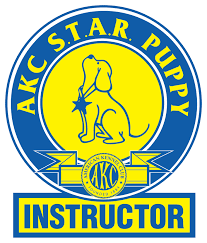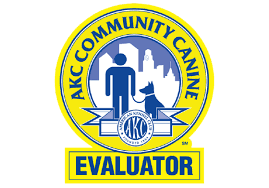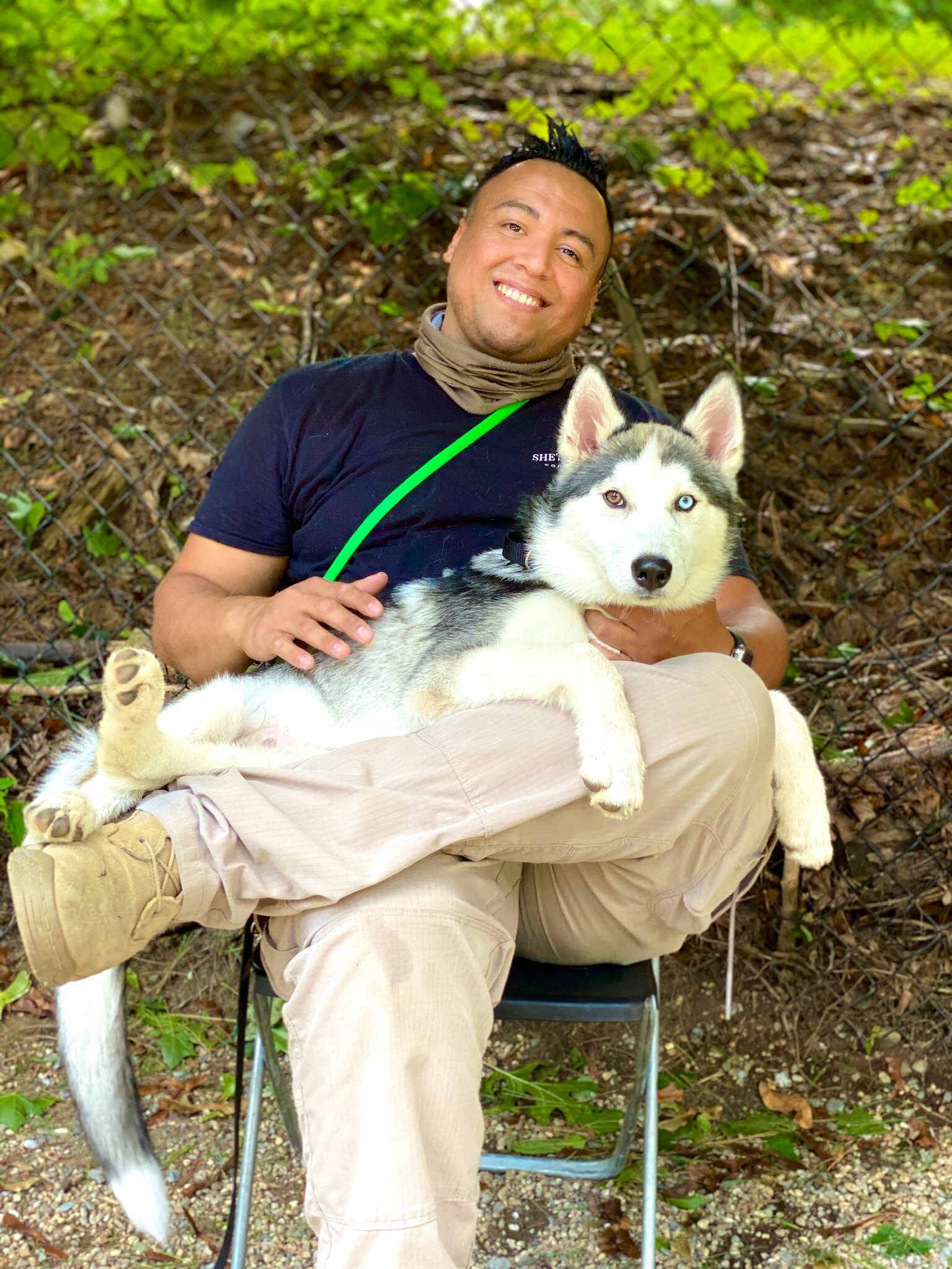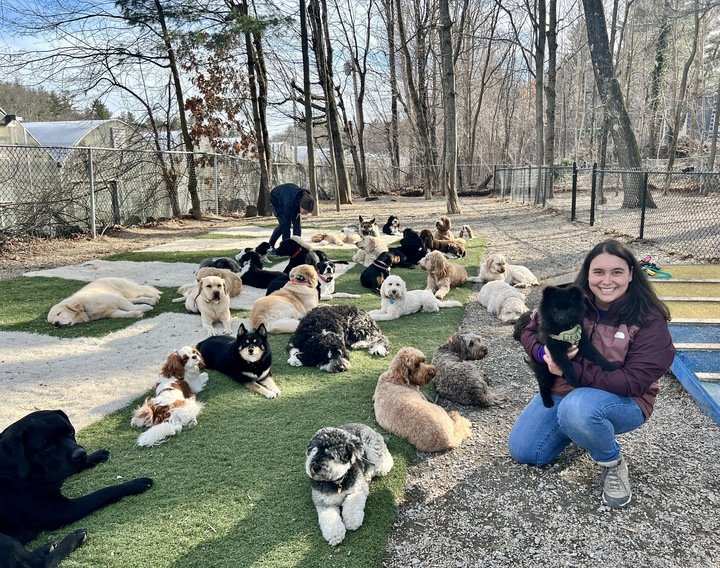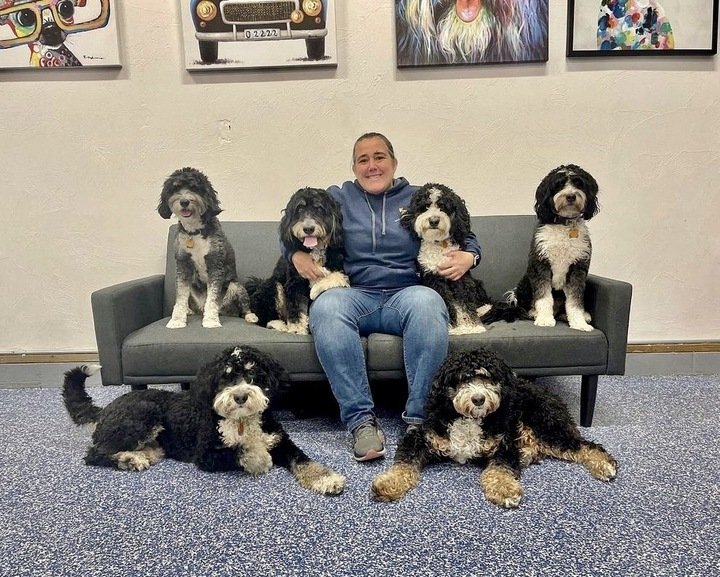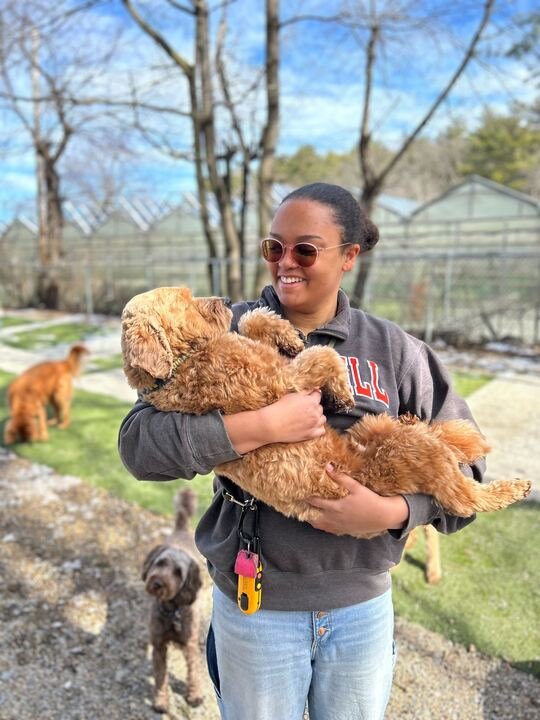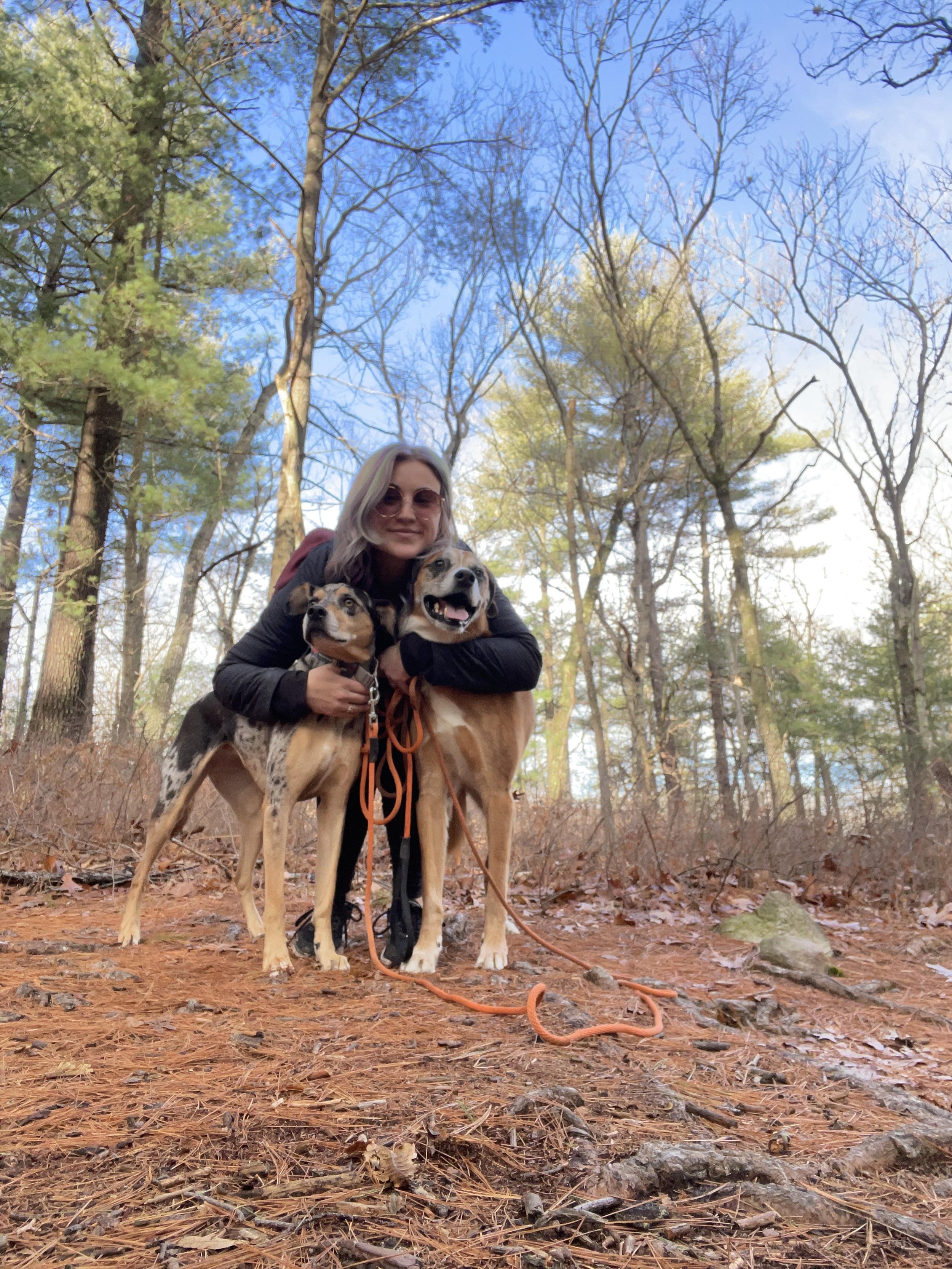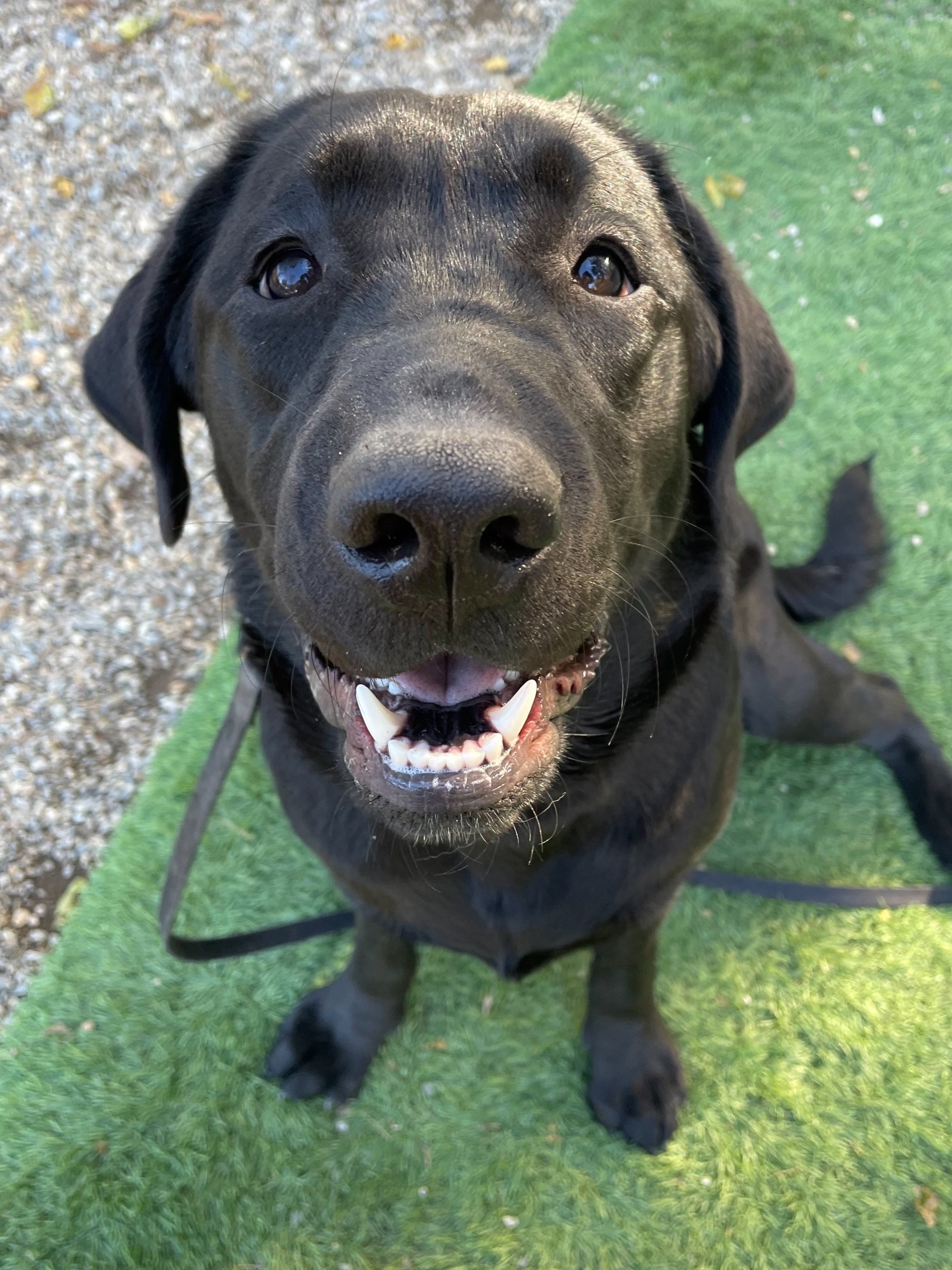.01
about us
Dogs are supposed to add to our lives and make them better, not detract from them and make them harder. Let us at She's a Keeper help you improve your life and your dog's, don't wait any longer!
We at She's a Keeper love helping people live happier, fuller lives with their dogs, starting with training. We help people train their dogs to fit their lifestyles and vice versa. We have over 30 years of combined experience training dogs in areas such as therapy work, competition obedience, rally, flyball, agility, nosework, dock diving disc and more. We offer private, in-home training sessions, structured boarding, board and trains, structured daycare, group classes and more! Check out our services and please let us know how we can help!
Our Team
Isys Johnson
She’s a Keeper Founder
Animal Therapy Project Co-Founder
Professional Dog Trainer
Canine Good Citizen Evaluator
Isys is a passionate dog enthusiast who wants every dog owner to live a happy, fun, full life with their dog. She has 20+ years training dogs with experience in multiple areas, including Competition Obedience, Flyball, Disc, Service Dog Training, Therapy Dog Training and Trick training. She graduated from Cornell University with a degree in hospitality management and decided to follow her passion, dog training, after 5 years managing restaurants around the country. Here she is pictured with her rescue dog, Keeper, her inspiration for the company. "I have the best job in the world! When you love what you do it isn't work anymore, that's how I feel about what I do."
Andy Castro
She’s a Keeper Co-Founder
Professional Dog Trainer
Andy Castro found his calling with dog training in 2014 and has learned an immense amount since then. After 12 years working as a chef in restaurants across the country, Andy now enjoys working with all ages and personalities of dogs. He loves working with the stubborn teenager dogs whom he can really bond and play with. His current dog is a Mastiff named Max, a certified therapy dog and 160 lb love bug.
Vanessa Fernandes, M.S.Ed.
Structured Day School Operations Manager
Dog Therapy Handler
Canine Good Citizen Evaluator
Vanessa is an enthusiastic, positive member to the She's a Keeper team! She has several years of experience working with children with special needs. Vanessa has achieved a Bachelor's degree in Counseling Psychology from Johnson & Wales University and a Master of Science in Education in Severe Special Education with a specialization in autism spectrum disorder (ASD) from Simmons University. Vanessa is the master mind behind the operations of our Structured Dog Daycare! She focuses on reinforcing our training methods and appropriate pack play in the yard. As an evaluator for the American Kennel Club (AKC), she loves teaching the AKC Puppy S.T.A.R. program and helping clients pass their Canine Good Citizen (CGC) certification. Her favorite part of the day is getting to interact with our amazing clients (both two and four legged)! When Vanessa isn’t working, she enjoys hiking with her Pomsky, Zeus, and German Spitz, Blitz! Here she is pictured with our awesome pack practicing their down-stays!
Veronica Fernandes, M.S.Ed.
Operations Manager
Dog Therapy Handler
Veronica is a passionate and motivated go-getter! She has achieved a Bachelor’s degree in Psychology from Western New England University and has spent over six years working in the Applied Behavior Analysis (ABA) field. She has also achieved a Master of Science in Education in Severe Special Education with a specialization in autism spectrum disorder (ASD) from Simmons University. Veronica is a strong believer in the power of teamwork in the workplace! She enjoys bringing her educational experiences to the team. Her favorite part of the job is communicating with our clients on a daily basis and getting to welcome aboard new clients to She’s a Keeper! Veronica loves going on hikes and learning new tricks with her Pomsky, Zeus and German Spitz, Blitz! Here she is pictured with Zeus.
Joanna Rowe
Professional Dog Trainer
Canine Good Citizen Evaluator
Joanna (aka Jo) found her way to She’s a Keeper as she looked to continue her education with dog training. She has always had a dog in her family, from terriers to pugs, and now two rescue pups, Coco and Frank! Four years ago she began working with a local rescue to foster, train and more. It was after one of her fosters was returned that Jo adopted Frank and her work with reactive dogs began. Her sweet Frank came back very dog reactive after being adopted by his first family. Jo was determined to learn everything she could to help him be a more confident and calm dog. She is passionate about dog training, especially working with reactive/fearful dogs. Joanna has a degree from the University of Rhode Island in Physical Education Teaching. In her free time she likes to be outside with her son and 2 dogs! She is often found hiking, paddle boarding or at the beach. Since working at She’s a Keeper, Jo has become “The Bernedoodle Whisperer!” Here she is pictured with her Bernedoodle pack!
Claudia Sicherman
Structured Dog Daycare Handler
Claudia’s love and respect for dogs began at a very early age. She has always loved spending time around dogs and teaching them tricks. Claudia also has a passion for visual and performance art. After attending the State University of New York (SUNY) at New Paltz for two years towards a degree in Theatre Arts, she transferred to SUNY Cobleskill to study Canine Training and Management. After just one semester, it was clear Claudia found the career path she always wanted! During her free time she enjoys composing digital drawings of dogs, including She's a Keeper clients! Claudia is excited to complete her internship with She's a Keeper and see where the wonderful world of dogs takes her next! Here she is pictured with our amazing client, Bogey!
Avery Proctor
Professional Dog Trainer
Canine Good Citizen Evaluator
Avery's passion for dog training began when he became a puppy raiser for Guiding Eyes for the Blind, where formed a deep connection with the black Lab he raised, Kobe. Having successfully raised Kobe for guide dog service, Avery was inspired to pursue a career working with dogs. Over four years he honed his skills by teaching private and group classes for a major retail pet store where he developed a solid foundation in customer service. Now, at She's a Keeper, Avery looks forward to leveraging his expertise and enthusiasm for training in his upcoming classes and private lessons, driven by the diverse opportunities the organization offers. In the photo above, he proudly stands with his beloved dogs, Chowder the long haired Akita and Kobe the black Lab.
Melissa Molander
Professional Dog Trainer
Canine Good Citizen Evaluator
Melissa Molander has been deeply engaged in dog training since 2015, refining her expertise through a comprehensive five-year mentorship under a seasoned Dog Trainer boasting over 15 years of experience. Throughout this mentorship, Melissa absorbed a vast wealth of knowledge across all facets of dog training. Her particular passion lies in training puppies, high drive dogs, and supporting anxious dogs in navigating the world. She continued to advance her skills through private lessons and group classes. Proudly owning two dogs herself, Colton, the hound mix, and Margarita, the catahoula leopard dog, Melissa has successfully guided both of her dogs to earn their Canine Good Citizen titles. Additionally, they actively participate in various dog sports such as agility, dock diving, toss n’ fetch frisbee, rally obedience, and engage in therapy dog work.
Thrilled to join the She’s a Keeper team, Melissa is enthusiastic about contributing her expertise and passion for dog training to the community. Here she is pictured with her dogs, Colton & Margarita!
Glenn Manzanares
Structured Dog Daycare Handler
Glenn is a responsible and dedicated individual whose passion for pets is evident in his regular rescue of stray animals, now channeled into his work at She's a Keeper. With a history of service in the United Stares Marine Corps and honed culinary skills as a Chef, Glenn exemplifies discipline, commitment, attention to detail, and a strong work ethic. His future goals with She's a Keeper include advancing professional development through further education in animal behavior, ensuring that every dog trained at She's a Keeper receives the highest standard of care and expertise.
Alejandra Manzanares
Structured Dog Daycare Handler
With a diverse background in both the restaurant industry and healthcare, Alejandra brings compassion, dedication, and a strong work ethic to every role she takes on. As a Certified Nurse Assistant with a specialization in hospice care, she has years of experience providing thoughtful, attentive support to those in need.
Alejandra has also spent over three years as a foster parent, offering a safe and nurturing environment for children during challenging times—a true testament to her caregiving spirit.
Now embracing her passion for animals, Alejandra has stepped into the role of dog handler, where her love for pets shines through. A proud pet mom to three dogs and four cats, she is a natural fit for the She's a Keeper team.
Whether caring for people or pets, Alejandra believes in the power of connection and the impact of small acts of kindness. Her goal is always the same: to make a difference, one moment of care at a time.
Trevor Bell
Animal Therapy Project Co-Founder
Trevor is a clinical social worker specializing in Animal Assisted Therapy and Pet therapy. He has over 20 years of experience in human services and special education as well as a lifelong commitment to the building of healthy and resilient communities of care. Trevor and Isys have been working together for years providing therapy dog services to children and adolescents across the Commonwealth. Trevor is fully invested in the healing power of animal-human bonds within the clinical context and in the community at-large.
our training philosophy
Our training philosophy is simple. We recognize every dog and handler team to be unique. Our training is designed to address these diversities. Our goal is to devise a training program for each dog and handler that fits their individual situation. Our training methods are based on motivational principles, with an overarching permission based training theme. Our goal is to motivate the dog to learn and perform, to build confidence in both the dog and handler, through success with consistent, interactive training. We treat each dog as an active participant, a student to be taught and molded, rather than forced. Our knowledge of animal behavior and our years of experience allow us to shape the dog’s behavior and enlist their willing participation in the training process.
How To Be a Good Dog Trainer
A good trainer is always learning and incorporating new information, techniques and tools into their program in order to serve more people and provide better results.
A good trainer is honest.
A good trainer doesn’t make anyone feel guilty for what they don’t know or what they’ve done in the past, but motivates them to do better in the future.
A good trainer does not sacrifice a dog’s well being for results, nor sacrifice results to adhere to their training dogma.
A good trainer recognizes when they are not equipped to deal with a certain behavior or dog, and does not take on that client if they don’t know that they can help.
